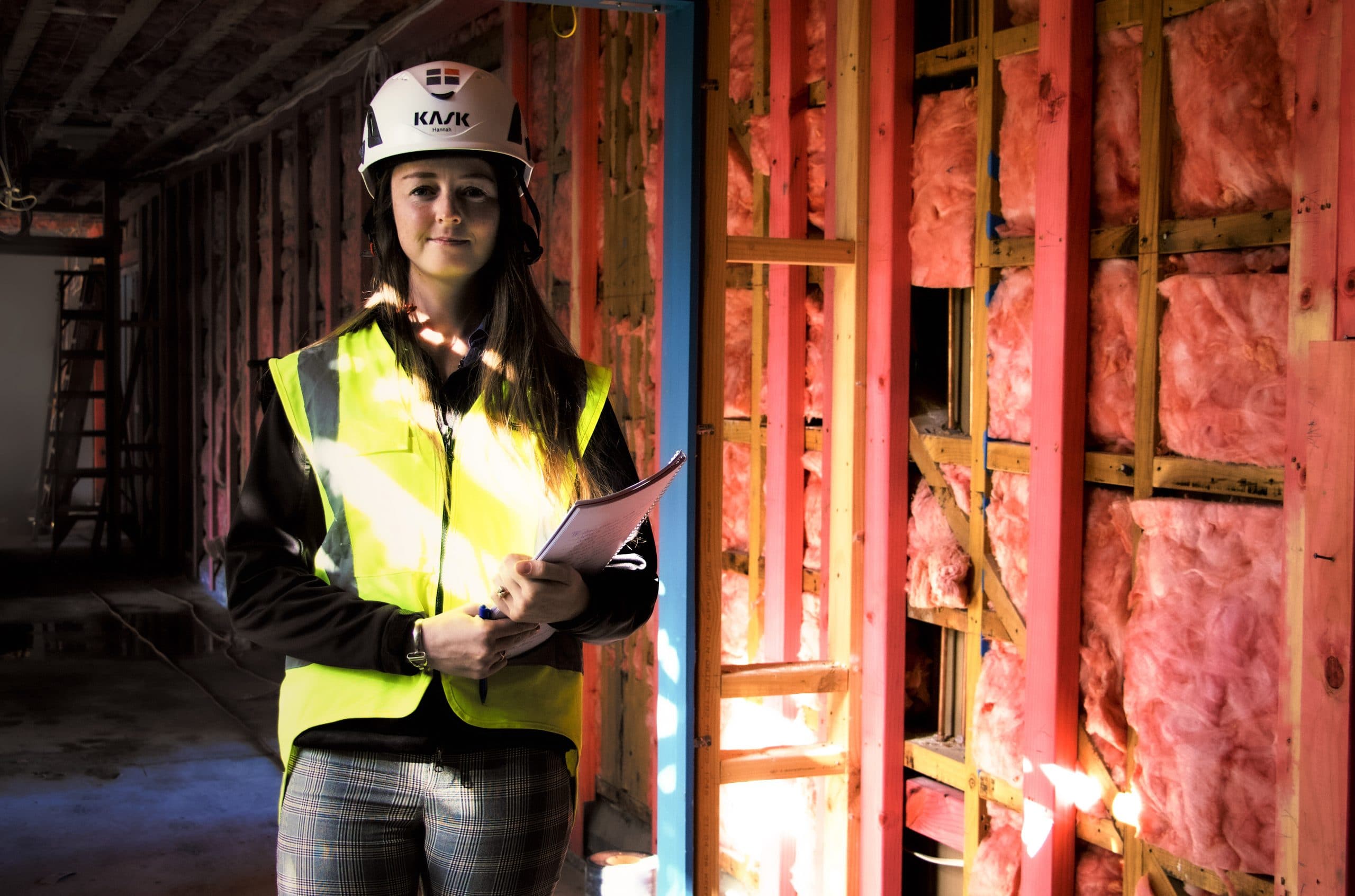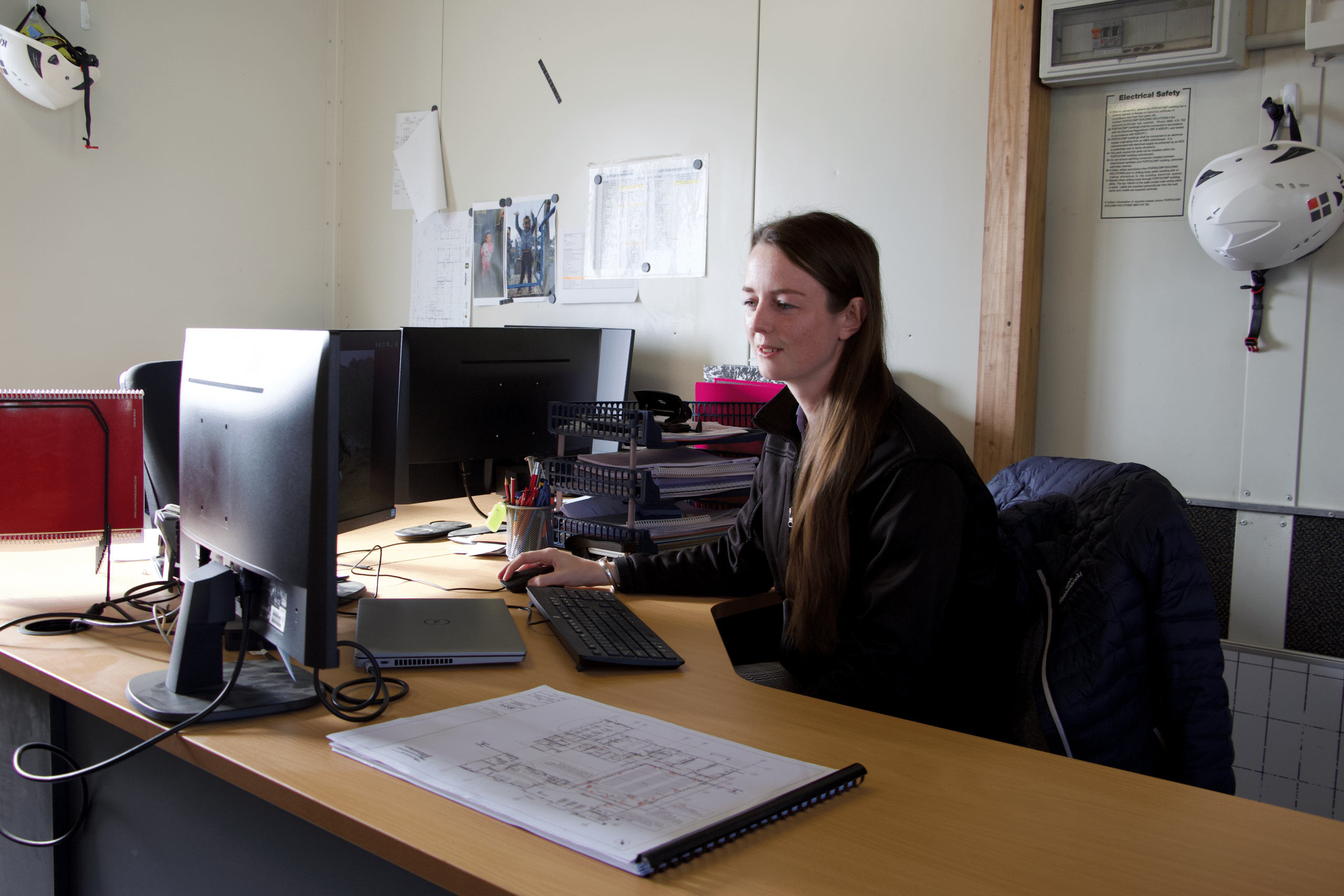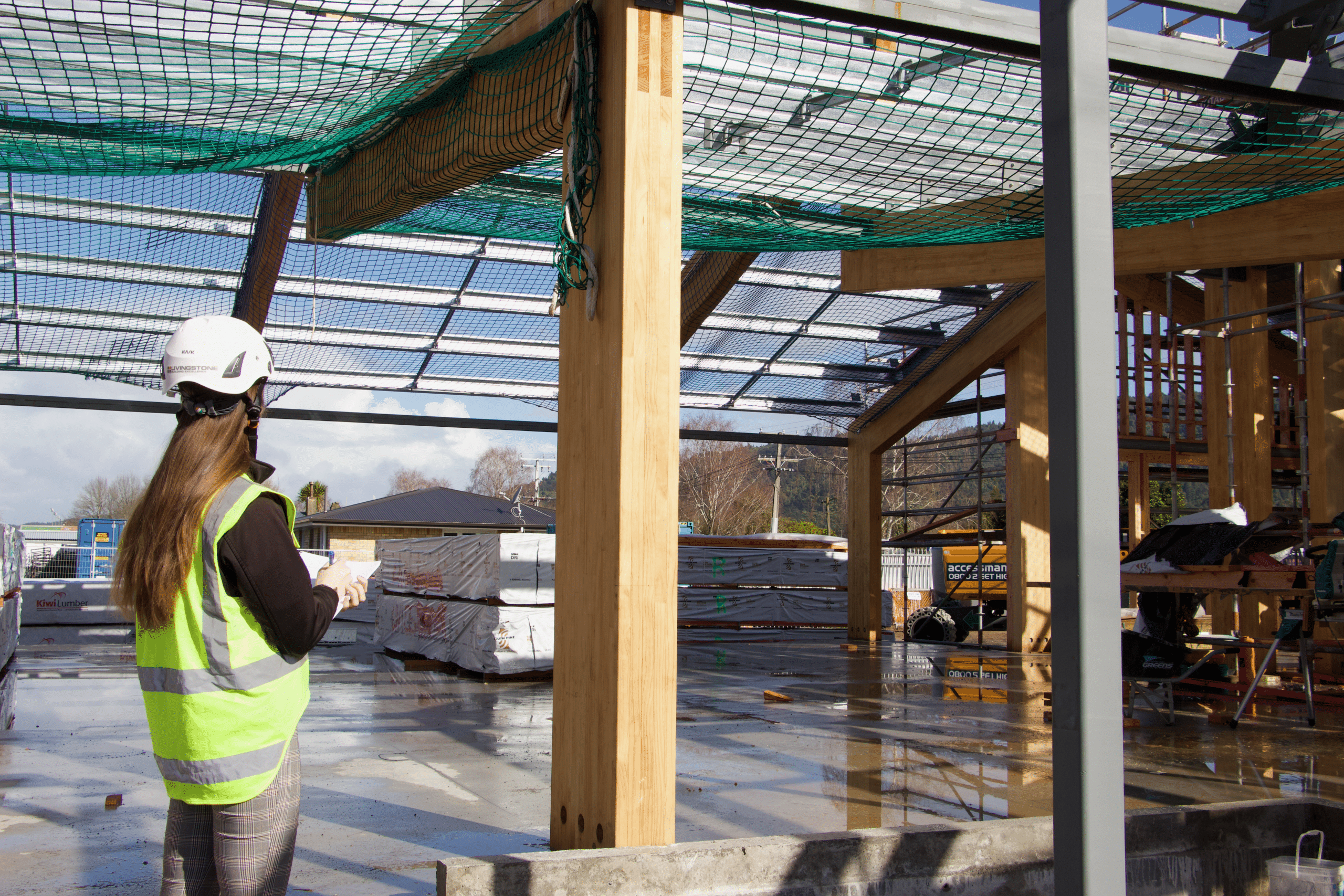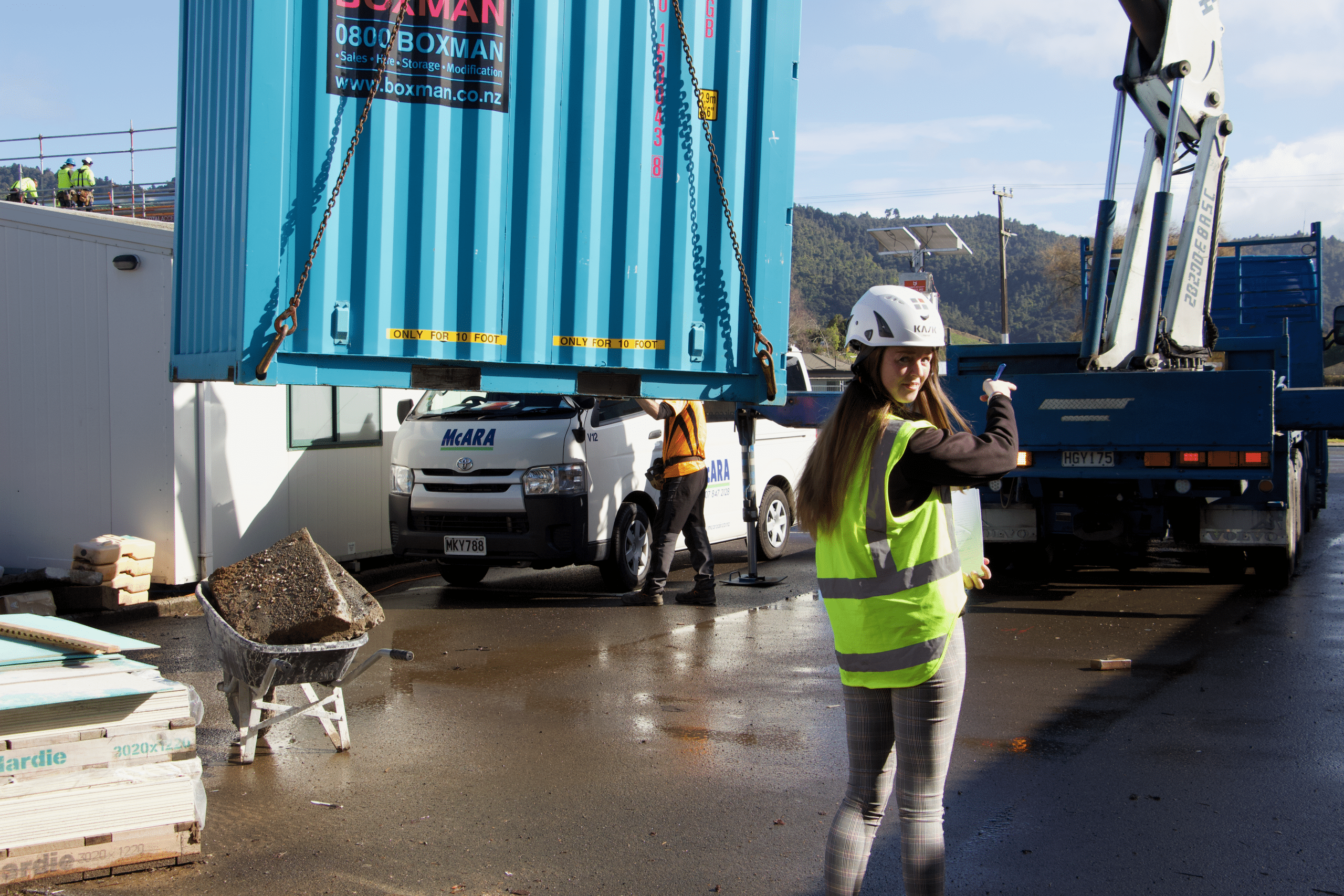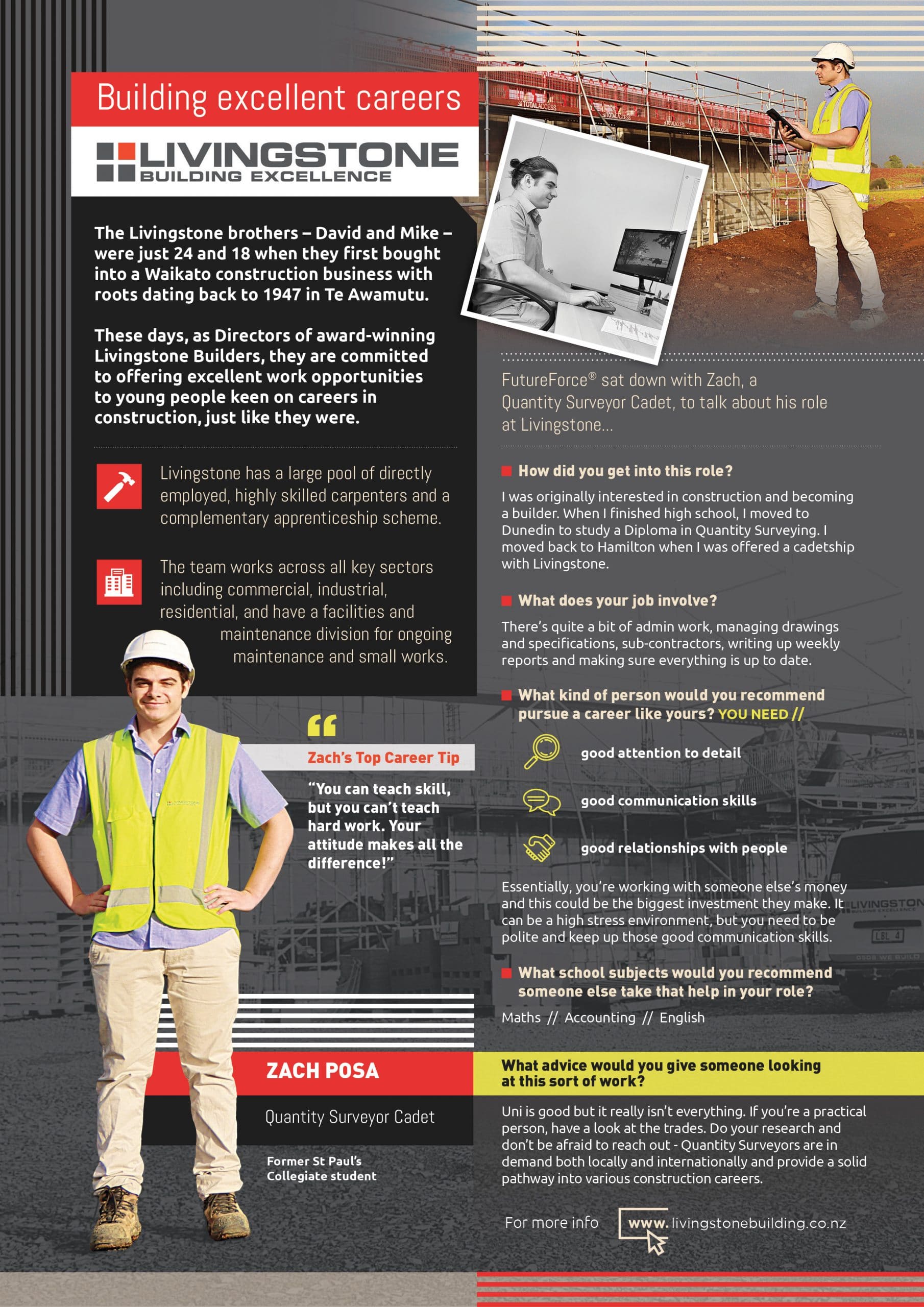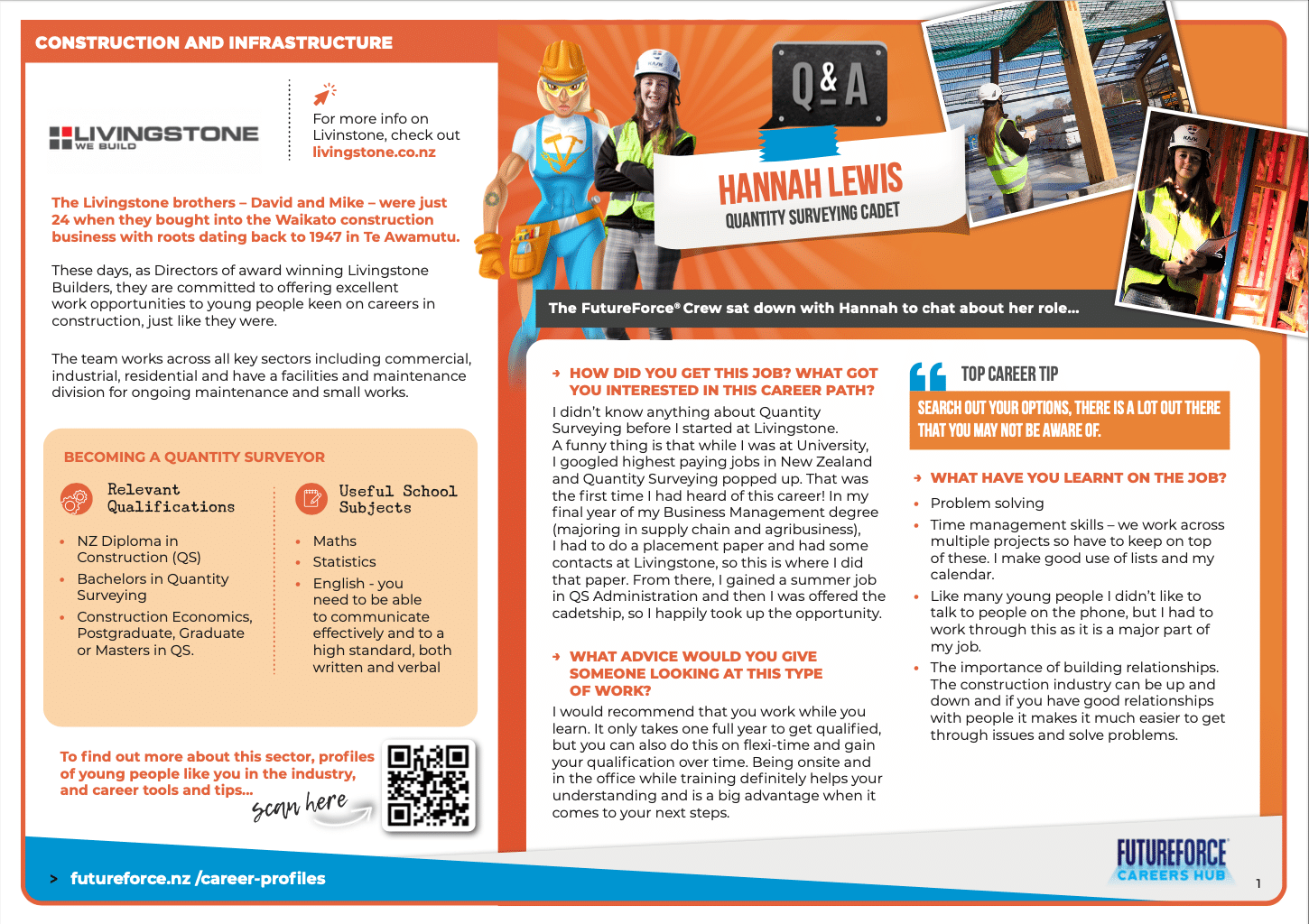

The Livingstone brothers – David and Mike – were just 24 when they bought into the Waikato construction business with roots dating back to 1947 in Te Awamutu.
These days, as Directors of award winning Livingstone Builders, they are committed to offering excellent work opportunities to young people keen on careers in construction, just like they were.
The team works across all key sectors including commercial, industrial, residential and have facilities and maintenance division for ongoing maintenance and small works.
The FutureForce® Crew caught up with Hannah Lewis, a former Cambridge High School student who is now working as a Quantity Surveying Cadet for Livingstone…
Hannah Lewis
Quantity Surveying
Cadet
Top Career Tip
“Search out your options, there is a lot out there that you may not be aware of.”
A Chat with Hannah about her role
Hannah Lewis
Former Cambridge High School Student
Quantity Surveying Cadet

How did you get this job? What got you interested in this career path?
I didn’t know anything about Quantity Surveying before I started at Livingstone. A funny thing is that while I was at University, I googled highest paying jobs in New Zealand and Quantity Surveying popped up. That was the first time I had heard of this career!
In my final year of my Business Management degree (majoring in supply chain and agribusiness), I had to do a placement paper and had some contacts at Livingstone, so this is where I did that paper. From there, I gained a summer job in QS Administration and then I was offered the cadetship, so I happily took up the opportunity.
What have you learnt on the job?
- Problem solving
- Time management skills – we work across multiple projects so have to keep on top of these. I make good use of lists and my calendar
- Like many young people I didn’t like to talk to people on the phone, but I had to work through this as it is a major part of my job
- The importance of building relationships. The construction industry can be up and down and if you have good relationships with people it makes it much easier to get through issues and solve problems
What do you like about working at Livingstone?
I like that it is a local business and that it grew up out of Te Awamutu. The original owners David and Mike are still around and still involved in the business. We have a diverse team, there are lots of women and a wide range of types of work in the organisation. I enjoy that I have a range of jobs from small to big projects, such as working at the airport which we will be involved with for two years. It’s not the same thing over and over, it’s always different.
What advice would you give someone looking at this type of work?
I would recommend that you work while you learn. It only takes one full year to get qualified, but you can also do this on flexi-time and gain your qualification over time. Being onsite and in the office while training definitely helps your understanding and is a big advantage when it comes to your next steps.
What do you wish you knew when you left school?
I wish I knew there were jobs like this available that you don’t have to have a degree for. I knew you don’t have to go to university, but I thought that you would have to do practical jobs such as a trade. This is a great career option because you can gain experience and get a qualification at the same time, while being paid to do it. There are lots of opportunities available because people with their diploma often already have hands on experience.
What challenges have you had to overcome?
I have had to learn to have confidence in myself and the ability to back myself. It is important to believe in yourself and what you are doing so that others can do the same. Gaining knowledge and experience on the job builds that confidence.
What advice do you have for keeping balanced and managing stress?
I have a hobby outside of work (I ride horses) and I think it is important for people to make time for outside interests. It’s about getting out and giving your mind a break, just having an outlet that is not work related.
Where would you like to go with your career?
It is very early days for me in my career, so I am focussed on finishing my cadetship. I would like to bring my Business Management degree in at some stage with the managerial side or possibly supply chain and procurement.
On the job
What do you do at work?
It is quite a varied role, but it is heavily focussed on contracts, so there is a lot of contract management, sub-contractor engagement, handling queries, measuring and working on-site.
I start my day at 7.30 am, check my emails and respond to anything urgent. We have pre-work meetings, sign up sub-contractors and do contract administration such as making sure we have the right documentation to send out.
Once a month I process and approve payments for our sub-contractors. We also do financial reporting and process claims to our clients.
We have a monthly PCG meeting (Project Control Group) which is a formal meeting with clients, consultants, project managers and quantity surveyors to go through financials, provide information, discuss issues and nut out any problems. We also have site meetings every two weeks – this is less formal but helps us keep on top of the project and any issues which may arise.
Becoming a Quantity Surveying Cadet
Skills, subjects and qualifications
To qualify as a quantity surveyor, you can gain a New Zealand Diploma in Construction (QS), Bachelor’s Degree in Quantity Surveying or Construction Economics, Postgraduate, Graduate or Masters in QS. You can take on entry-level roles with either kind of qualification. If you get a New Zealand Diploma, you can go on to complete the degree programme, and you’ll probably be able to cross-credit some of your papers. With a Bachelor’s degree you can go on to study for a Postgraduate Diploma or a Masters. You can study as you begin your career or retrain for a new career. You can study part- or full-time and can study while gaining experience in the construction industry (NZ Institute of Quantity Surveyors).

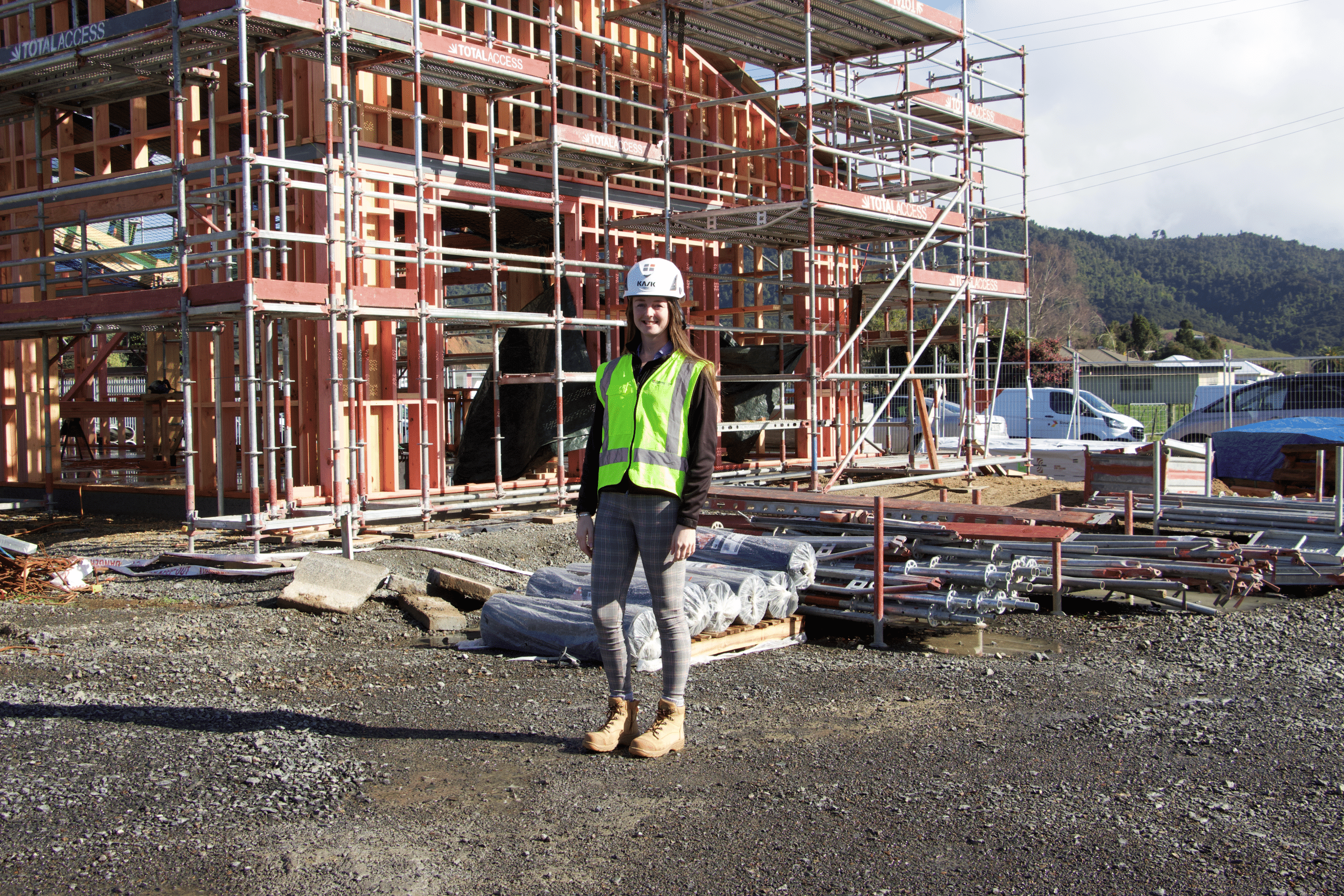
Useful School Subjects
» Maths and statistics, to be familiar and comfortable with numbers. It’s not complicated but sometimes the numbers get pretty large so it’s good to feel comfortable with the maths sides of things.
» English – this is a big one. You need to be able to communicate effectively and to a high standard, both written and verbal.

